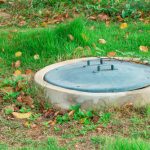 Tips for Caring for Your Septic System
Tips for Caring for Your Septic System
As a homeowner, it’s important to understand the importance of maintaining and caring for your septic system. Unlike municipal sewer systems, septic systems require regular maintenance to prevent costly repairs and possible health hazards. In this blog post, we’ll provide several tips for caring for your septic system.
What Is a Septic System?
A septic system is a wastewater treatment system that processes and disposes of household sewage. It’s composed of a septic tank and a drain field, also known as a leach field. The septic tank serves as the first point of treatment where solid waste settles and bacteria breaks it down. The effluent then flows into the drain field, where it’s absorbed into the soil and treated by natural bacteria.
Tips for Caring for Your Septic System
1. Regular Pumping
Regular pumping of your septic tank is crucial in maintaining its efficiency. The frequency of pumping depends on the size of your tank and the number of occupants in your household. On average, a typical tank should be pumped every three to five years. However, if you have a smaller tank or a larger household, you may need to pump more frequently.
Pumping is essential to remove the accumulated solid waste that doesn’t break down naturally, preventing it from overflowing and clogging the drain field. This allows the soil to better absorb the effluent and keeps your system running efficiently.
2. Water Conservation
To keep your septic system healthy, it’s essential to conserve water. Excess water in the system can overwhelm the tank and drain field, leading to system failure. In addition, conservation reduces your water bill.
To conserve water, consider installing low-flow fixtures, fixing leaks, and spreading out water usage throughout the day. Avoid washing multiple loads of laundry at once or taking long showers that use a lot of water. Also, if you have a garden or lawn, consider using drought-tolerant plants to reduce your water usage.
3. Proper Disposal of Waste
Your septic system is not designed to accommodate certain items, and disposing of them improperly can lead to significant problems. Never flush non-degradable items such as cigarettes, feminine hygiene products, wipes, or food scraps. These items can clog your system, leading to costly repairs.
In addition, do not pour hazardous chemicals such as cleaners, paints, or oils into your drains. These can kill the bacteria in your system, leading to inefficiency in wastewater treatment. Always dispose of hazardous materials responsibly. The safest option is to take them to a disposal facility where they can be properly processed.
4. Regular Inspections
It’s important to inspect your septic system on a regular basis to ensure that it’s running efficiently. This will help identify potential problems before they become significant and costly. For example, if you notice your drains are running slow or your yard is soggy, it could indicate a problem with your system.
Also, a professional septic service should inspect your system. A licensed septic inspector can pinpoint any problems with the system, such as deteriorating components, and provide effective and timely solutions.
5. Stay off Your Drainfield
The drain field is the essential part of your septic system. It’s where effluent is treated and absorbed into the soil. To keep your system operating efficiently, it’s important to avoid driving or parking on the drain field.
The weight of a vehicle compresses the soil and can damage pipes, leading to a costly repair. Additionally, building structures on top of the drain field can prevent natural evaporation and cause effluent to surface, leading to unpleasant smells and possible health hazards.
Conclusion
Caring for your septic system is crucial for maintaining the health and efficiency of your home’s wastewater treatment system. Following the tips mentioned in this blog post can help prolong the lifespan of your septic tank and prevent costly repairs. Remember to have your tank pumped regularly, conserve water, dispose of waste properly, inspect your system regularly, and avoid parking or driving on the drain field.
Got questions about your septic system? Let us help! Contact us today to learn more about what we can do for you!
